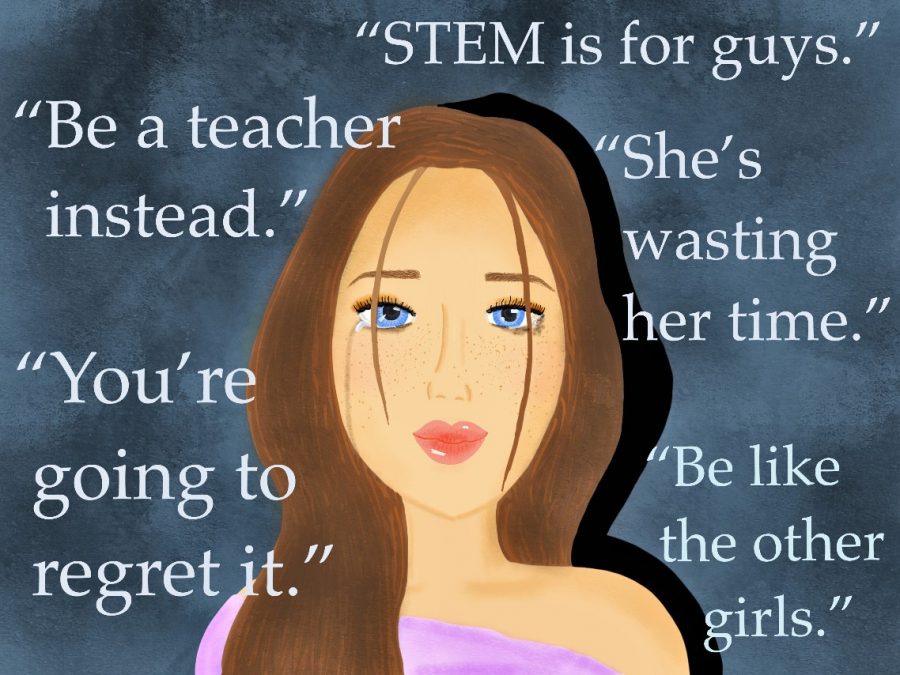Dawe: The clash of femininity and STEM
There is a disparity in the number of women in STEM-related fields compared to men.
December 2, 2020
As a child, I was one of those girls who was “not like other girls.” I either got my hair cut by my mom or at my dad’s barbershop, I did outdoorsy things and most of the clothes I wore were from my two older male cousins. This was a result of internalized misogyny, and it caused a lot of problems like self-hatred and a lack of respect for my fellow women.
Internalized misogyny is when women subconsciously project sexist ideals onto themselves and other women. A lot of this comes from the way women are portrayed in the media. For me, this was a large part of my internalized misogyny. I have always been interested in science, and women in science are usually forced to give up their femininity in order to be taken seriously. This is not helped by media representations of the lone woman scientist, with no female friends who are not portrayed as outwardly feminine. A good example is Amy Farrah Fowler in the Big Bang Theory. During the show, she never dressed in a feminine way or expressed interest in any feminine things. This woman in STEM was correct in her assumption that concealing her femininity would result in her being taken more seriously. Accounts like these are what many women in STEM experience whether they openly admit it or not.
I remember thinking in fourth grade about being forced to give up my femininity to be considered more intelligent. Obviously, not in those exact terms, but the fact that I, at age nine, already knew that at some point I was going to have to give up a part of my identity to be taken seriously is a major problem.
It has taken so much work for me to get to a point today where I am comfortable expressing myself in both a feminine and masculine way. I no longer feel shame saying my favorite color is pink, nor do I feel less like a woman when I wear baggy, men’s clothes. Most importantly, I no longer think less of other women for expressing themselves the way that they want to, whether it be in a feminine or masculine way.
While I have made great progress in unlearning misogynistic traits, I am worried that they are going to come back. This is a male-dominated field; only 9.5% of freshmen women were intending to major in a STEM field, compared to 27.9% of men. Even worse, around 32% of women switch out of STEM programs while in college, and only 30% of women who earn an engineering degree are still in the field 20 years later.
All of these statistics indicate the simple and quite obvious fact that femininity does not thrive in STEM environments. I am afraid that I will have to give up my femininity in order to be taken seriously in the field that I want to enter. I fought so hard to be confident in who I am, and yet I may have to give all of it up in order to succeed. I am worried that I am going to become the woman I used to be, the type of woman I pity now. I don’t want to hate parts of who I am, simply because they don’t thrive in the environment that I am going into. I also don’t want to start shaming other women for the way they present themselves, in order to fit in in an environment that is not made for women. Intelligence and feminine traits are not mutually exclusive, but it has been subconsciously ingrained in our society’s eyes that they are.









